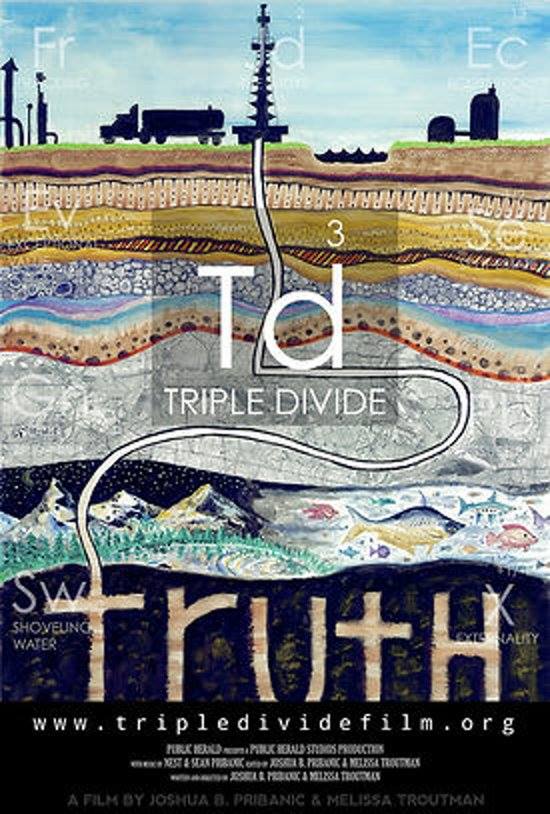Appalachian Film Festival Brings Interest to Area Issues
When walking into the Palace Theatre for the first time, it feels as if you’ve been transported into a time long gone. Its atmospheric feeling brings back memories. While its dark maroon colors feel somewhat uninviting at first, once seated in the theater itself, the audience can begin to feel more relaxed as the old-time projector begins to show its film, or when the actors come upon the stage to speak. The theater is larger than it seems, with three long rows of seats and dark red carpeting running down the two aisles, matching the patterned walls. The stage itself is somewhat small with large amplified speakers on both sides and a lone microphone sitting front and center on the stage.
As the start of the ninth Appalachian Festival begins with the film festival hosted at the Palace Theatre, Kara Rogers-Thomas, the organizer of the three-day-long festival, steps up on the stage to talk about the upcoming film, “Triple Divide,” stating, “Frostburg is partnering with Savage River Watershed,” which was followed by a round of applause.
At the end of her speech, she introduced a special guest to the audience, Barbara Hurd. She is a poet and author of three books, including “Stepping Into the Same River Twice.” She begins reading what she “thinks of as a five-minute fable.” Her soft voice adds to the tone of the poem, which paralleled what the film discusses.
Many people did not know what to expect when they began watching this film, and throughout the screening, it was easy to see just how amazed people were at the things that happen in this film. The factor that really brought this film to light was the numerous interviews the filmmakers were able to get with people who had had first-hand experience in these matters. The film discusses many different and complex issues, and the feeling is you really need to think about what they are saying. This film shows a breakdown of trust, and the responsibility of the one thing humans cannot live without: water.
The idea of the contamination of drinking water through the extraction of shale gas is disturbing. Several farmers and landowners were interviewed in this film, all having negative experiences with this. One farmer even stated that he felt like a visitor on his own land because he had signed no previous paperwork allowing them to dig for shale gas on his land.
Their were many scenes similar to this that were memorable because they were so disturbing. One scene in particular dealt with investigative reporters going near a hydraulic fracturing machine that had “no trespassing” signs and their car being boxed in by trucks. When the reporters wouldn’t give the truckers their cameras, one female reporter was physically assaulted by one of the truckers until another reporter pulled him off. After the incident, a lawsuit was filed, and the reporters were named “Eco-terrorists” for trying to sabotage their work site.
As the film progresses, the overall changing of color is noticeable, reflecting the film’s tone. As the film dives into darker material, the colors begin to do the same. At the beginning of the film, the audience is introduced to a lush green forest with a river running through it. Then the colors begin to change from quiet green forests and farmlands to gray foggy backgrounds, to eventual night, which is when the latter part of the film is shot.
This is a film that is better to be seen first and then discussed. “Triple Divide” shows people that things are not always as they appear and because of that, society has to be careful of whom they trust. After listening to interviews throughout the film, one thing is clear: the price for clean water will go up. After having several unclean water samples tested from various areas where shale gas was being sought, the Department of Environmental Protection had repeatedly said that they did not infect the landowner’s water.
Some facts stated in the film were indeed startling, such as one out of every six wells in America have violations of some sort in them, and that radon is in fact the second leading cause of lung cancer in America, only behind smoking. Thomas also pointed out that Frostburg, for example, gets most of its water from Garrett County, having it brought over from the other side of the mountain.
The Triple Divide movie poster above belongs to Public Herald.




